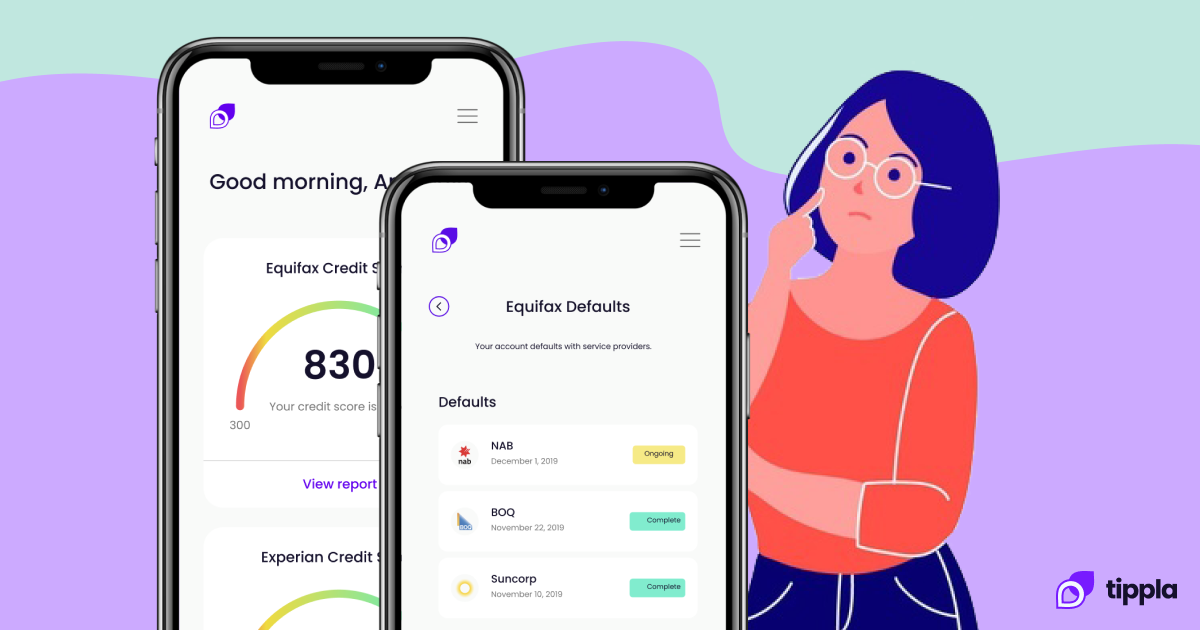Who Looks at Your Credit Report? A Quick Overview
This text can be used to describe shortly what the Credit Score Basic is used for.
In Australia, you have three credit scores and credit reports. The information contained on your credit report can be the difference between you being approved or rejected for a loan. But who looks at your credit report and why? Tippla has the answers for you below.

What is a credit report?
A credit report is a document that contains your recent personal and credit financial information. What does this mean? If you have taken out any form of credit (a loan, credit card, utilities, phone plan, etc), then this will appear on your credit report.
Specifically, here’s a rundown of what information will appear on your credit report:
- Personal information – such as your name, address, date of birth and employment;
- Credit account information – all of the credit accounts you currently have open or have closed in the past two years, such as any loans, credit cards, utilities, and more;
- Repayment history – your repayment history for your credit accounts will be listed on your report;
- Credit applications – every time you apply for some kind of credit, regardless of whether you were approved or rejected, it will appear on your report;
- Negative entries – this includes bankruptcies, defaults, public records and court judgements.
How long do items stay on your report?
Your whole credit history won’t appear on your report. All of the information has an expiry date. Here’s a rundown of how long you can expect information to stay on your report:
- Credit accounts – all current accounts, and any that you have closed in the past 2 years;
- Credit applications – 5 years;
- Repayment history – your report will show your repayment history over the past 2 years;
- Defaults – these will appear on your credit report for up to 5 years;
- Court judgements and bankruptcies – 5 years;
- Serious credit infringements – up to 5 years.
Why does your credit report matter?
When you apply for any kind of credit, whether it be a mortgage, or even a personal loan or electricity provider, they will check your credit report to see how risky of a borrower you are.
They will look at your credit score, a number ranging from 0 – 1,200 which is based on all of the information contained in your report, as well as your credit file. They will look at this information, as well as other documents that give them an idea of your financial situation, such as your bank statements, employment details, etc.
So, why does your credit report matter? It is one of the ingredients lenders, banks and other credit providers use to determine whether they will accept or reject your application. Therefore, your credit report could be the difference between you being accepted and rejected for a loan.
Who looks at your credit report and why?
With this in mind, who looks at your credit report, and why? Not just anyone can look at your credit report. Your friends, your neighbour, even your employer – none of them can access your credit report. Only companies that you permit to view your report can see your file.
Every time you apply for credit, you are giving the company you’re applying to permission to view your credit report. This permission will often be granted in the terms and conditions of the application. They check your credit report to get an idea of your creditworthiness and assess how much of a risk you are.
Therefore, any company that you apply for a credit card, loan, utilities, phone plan, and more with, can view your credit report – but, only if you permit them. However, generally speaking, if you don’t consent to a credit search, it’s unlikely your application will be processed.
There are a few loans out there that claim to not check your credit score. These are called “no credit check loans”. However, they are usually only small personal loans, and they often come with high interest rates and fees.
What do lenders look for on your credit report?
When lenders, banks, and other credit providers check your credit report, what are they looking for? Generally speaking, when a company looks at your file, they’re trying to get a sense of how reliable you are.
They will be looking out for any credit defaults, which indicates that you haven’t been able to meet your repayments in the past. They will also check how many open accounts you already have – too many can make you more of a risky borrower.
Other things they will look out for – negative entries, repayment history, maturity of your accounts, and more. The purpose of them checking your report is to get insight into whether you are likely to repay the amount you want to borrow.
Do you have a below-average credit score and want to improve it? Check out Tippla’s helpful guide on how to improve your credit score here.
While we at Tippla will always do our best to provide you with the information you need to financially thrive, it’s important to note that we’re not debt counsellors, nor do we provide financial advice. Be sure to speak to your financial services professional before making any decisions.